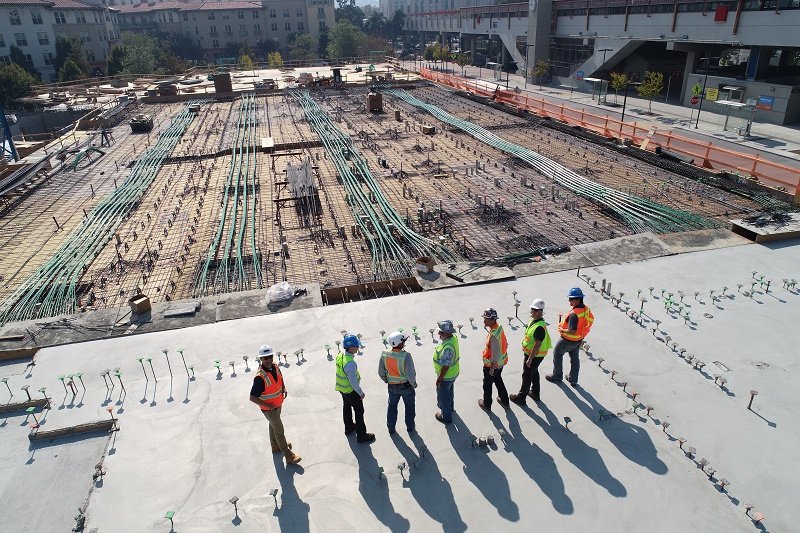
Reducing the Effects of Construction Delay
At times, even the best laid construction plans cannot ensure any construction site is immune to any kind of delay. This may sound ironic but in construction, delays can come in at any time of the day. This can be due to either contractor defaulting, owner’s undesirable acts, problematic schedules, or due circumstances beyond human control.
A lot of construction contracts often include a clause for determination and extension of Contract time clause. This provides guidelines for requesting changes to the schedule agreed upon.
Yet, significant delay can lead to expensive and time-intensive legal claims and a complex and lengthy legal process. No one wants this to happen because of the undesirable outcomes it can bring. Hence, a general contractor’s ability to respond to delays as quickly as possible is the best thing any construction company and a project can ever have.
What are the effects of construction delays?
Construction delays can have disastrous consequences for any and all construction projects involved. It can cause an unfair acceleration of timeline which can result in inflated wage and expense bills (meaning contractors and construction companies pay more because of more time spent in completing a project).
A consequence of timeline acceleration is inefficiency due to unannounced schedule changes. This gives the impression that both the contractor and the construction company. The tasks get delayed and several amendments have to be made which results in more delays. Expenses rise as a consequence.
Intermediate completion dates are a must in construction. They help contractors, workers, managers, and construction companies assess the state of the project and be able to determine its projected completion. This is a milestone and it even helps them assess whether or not the project is of the best quality.
Liquidated damages are something no construction company or contractor wishes to endure. This can result from construction claims filed by either party. Whoever wins does get a good amount but that good amount is hefty. In case it is an infrastructure project, delays there can never be desirable.
A bad consequence of construction delays is a rise in direct, and indirect, impact and other costs. Would this inflate the wage bill? Certainly, it will. Expenses of equipment and materials? That’ll go high too. What will all of this result in, is frustration among owners and of course, a truck load of legal claims.
Reducing the effects of construction delays – how is it done?
Reducing the effects of construction delay is basically the essence of dispute avoidance. Everyone understands how and why delays of any kind can be problematic things. They often demand a swift response from management at construction sites.
Effective management of construction sites needs able-minded and able bodied people who can understand the situation’s gravity caused by these delays, evaluate potential impact and adjust the timeline responsibly. Small setbacks have the potential to metastasize into larger stumbling blocks.
Here are some tips to tackle construction delays:
Anticipating the issue
Experience in managing construction sites brings the ability to anticipate when and where delays may pop up. Anticipating them is a proactive tactic. This is helpful in preparing both clients and teams alike so the response can be swift, effective, and robust, whenever a delay arises.
This helps remove any shock and panic caused by the delay. It consequently gives companies and clients ample time to make further tactics with a clear mind without any emotional knee jerk.
Prioritizing planning
Professional construction planning helps lay out a project’s timeline from start to finish, which allows managers to stay within the budget, anticipate any and all potential hazards, and make the needed adjustments in the timeline at the moment.
Delay allowances, whether slight, moderate, or large in the margin; are often integrated into a CPM timeline. This gives project management teams room to manage any and all inconveniences arising.
Hence it is best to prioritize time estimates, cost estimates, as well as proper allocation of resources right from the beginning. This will help balance the CPM schedule.
Preventing acceleration of timeline
In this regard, acceleration simply refers to the owner or the general contractor speeding up the project’s progress to make up for a lost time. They do it to complete the project either a bit early or on time. However, rushing things is always a bad idea. A knee jerk reaction will put the project’s result in a disaster zone.
This is why contractors and site management teams must take time to readjust schedules formally and accommodate all delays that happen.
Proper communication channels with a chain of command
In case a timeline has been adjusted or expectations were altered in one way or the other, it is wise to communicate with team members, subcontractors, and other vendors. This will help them understand the new timeline without any disappointments. This will help dispute avoidance by keeping all in agreement to move forward with the plan.
This is why maintaining a well-informed and multi discipline project team that is competent is key to making sure a positive outcome is present for all members involved in the construction project.




